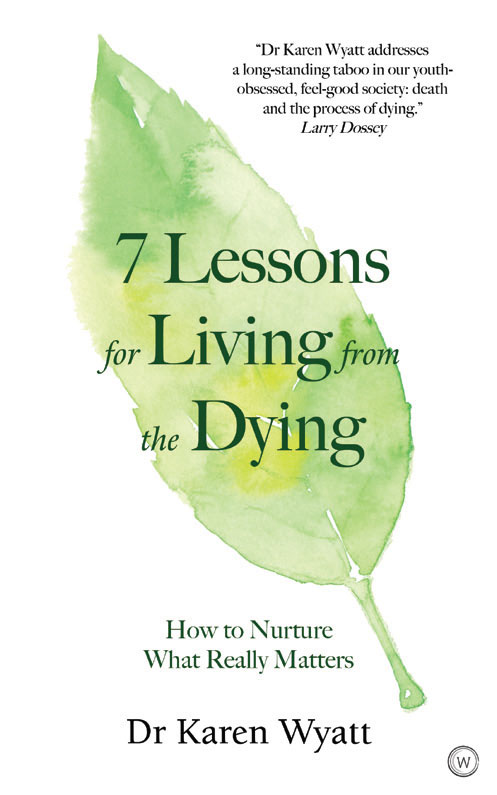What if you thought about death multiple times a day, every day? In Western society you would probably be labeled as depressed, morbid, pessimistic, or neurotic, much like a character from a Woody Allen movie. But in the tiny Himalayan country of Bhutan, which has been named “the happiest country on Earth,” people contemplate death five times a day as part of their Buddhist tradition.
Clearly, thinking about death doesn’t prevent happiness and it seems, from the example of the Bhutanese people, that acceptance of death might actually be helpful in finding peace, meaning and joy in life. Indeed Tibetan Buddhist teacher Sogyal Rinpoche writes in “The Tibetan Book of Living and Dying” that regular contemplation of death can lead to a deep experience of joy as old attachments and negative habits are released.
But most of us in the West are terrified of death and avoid addressing it unless absolutely necessary. Furthermore as many as two thirds of Americans report that they are not very happy in their day-to-day lives. Clearly something is missing for most Americans and it is important to address this issue since studies have shown that happiness is a key factor for overall physical health.
Researcher Laura Kubzansky has found that characteristics like resilience, positive outlook on life, and a sense of meaning and purpose all lead to increased happiness and therefore better health. Interestingly, these are some of the same traits that Sogyal Rinpoche teaches are enhanced by accepting the reality of death, along with a reduction in fear and stress.
So is this enough reasonable evidence to get you to try a practice of “death awareness” for greater happiness and better health? If so, here are some tips for beginning your own daily routine of thinking about death.
Establish a regular time of day for your practice
To maintain any new routine it helps to set aside the same time every day, like first thing in the morning or before going to bed at night. This regularity will help you remember to do the practice each day and will ingrain it as a habit more quickly than if you do it on a random, variable schedule.
Stay relaxed
Take a few deep breaths before you begin to help you get into a state of relaxation. We know from neuroscience that “what fires together, wires together” so it is important to couple your thoughts of death with a sense of physical and emotional calmness rather than fear. Then in the future whenever you think about death your brain will recall this calm feeling at the same time. Deep breathing can help you achieve this because it triggers the relaxation response mentally, physically and emotionally.
Make it a pleasant experience
During your routine include some enhancements for your five senses like peaceful music, a scented candle, flavorful tea, beautiful art, or a view of nature. In this way you will gradually train your brain to conjure up pleasant sensual memories along with a state of calmness when you think about death.
Avoid fearful images of death
One of the reasons many of us are terrified of death is because we have witnessed frightening scenes of dying in the past through news reports, movies, books, or our own life experiences. Start by visualizing the leaves of a tree in autumn as they turn brown and fall to the ground. This peaceful representation of death can be expanded upon over time to include other images as you become more comfortable.
Focus on the “big picture”
Rather than obsess about the details of your own death, which might create stress and anxiety in the beginning, contemplate the cycle of life and death that exists in nature and throughout the entire universe. Remember that even stars and planets die and that all deaths ultimately bring about new life.
Keep a journal
After your session of death contemplation it can be helpful to keep a few notes in a journal. You can process your thoughts and record your progress as you become more and more comfortable with the idea of death in general and your own mortality, in particular.
Since death is inevitable for each one of us, there is nothing to lose and much to gain from increased comfort with thoughts of mortality, including becoming more peaceful and less fearful of life. Imagine how free you would feel if you could rid yourself of your fear and live each moment to the fullest. That is one of the promises of a “death awareness” practice that is most enticing.
If we can learn to enjoy our fleeting and brief lives just as they are perhaps we will become less materialistic and more focused on the deep values of life like love and joy. There is no denying that our world needs more love and less fear right now so let’s emulate the Bhutanese people and get comfortable with thoughts of death.
 Dr. Karen Wyatt is a hospice and family physician who writes extensively on spirituality and medicine, especially at the end-of-life. She is the author of the award-winning book 7 Lessons for Living from the Dying: How to Nurture What Really Matters. Connect with her at karenwyattmd.com, on Facebook at fb.com/eoluniversity and on Twitter @spiritualmd
Dr. Karen Wyatt is a hospice and family physician who writes extensively on spirituality and medicine, especially at the end-of-life. She is the author of the award-winning book 7 Lessons for Living from the Dying: How to Nurture What Really Matters. Connect with her at karenwyattmd.com, on Facebook at fb.com/eoluniversity and on Twitter @spiritualmd
https://www.oneworldeducation.org/bhutan-worlds-happiest-country
https://www.hsph.harvard.edu/news/magazine/happiness-stress-heart-disease/
http://www.curiousapes.com/the-science-of-happiness-why-complaining-is-literally-killing-you/




















